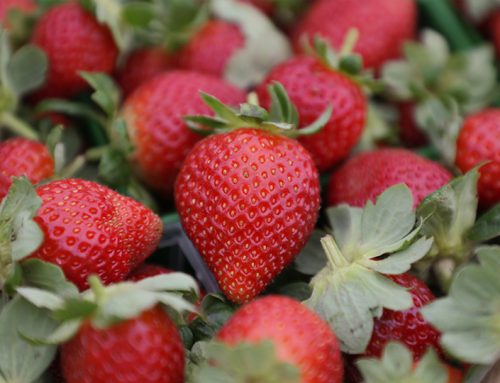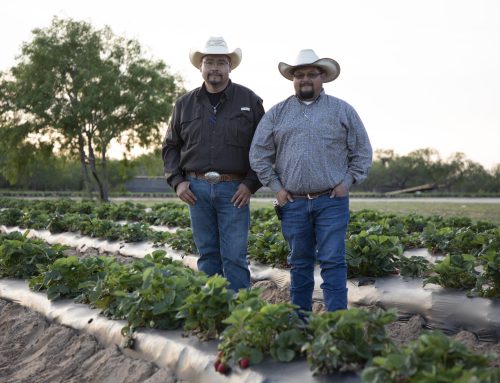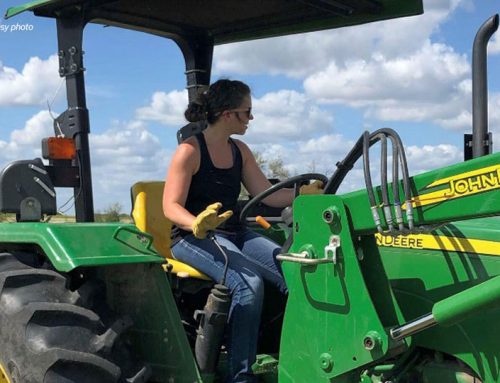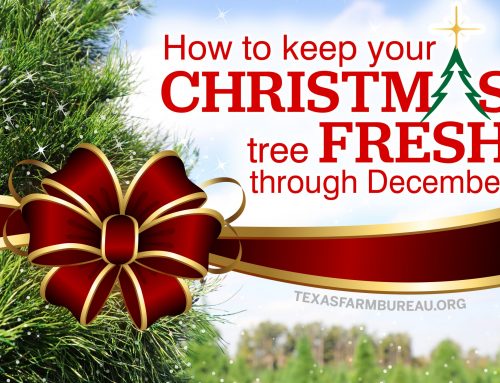By John Paul Dineen III
My family is in the business of agriculture, helping to feed the people of our state, nation and world. I farm and ranch full time on the Blacklands of North Central Texas. My wife, Heather, and I and our four children call Ellis County home, where we farm 1,800 acres of dryland crops. We also have a small commercial cow-calf operation.
Texas Food Connection Week, Feb. 17 -23, is being celebrated across the Lone Star State. I would like to talk with you about how we grow that food and the steps we take to ensure that food is safe, wholesome and nutritious.
My family eats the food we raise. Safety is a top priority on the Dineen farm. When it comes time to work the land, plant the crops and apply various herbicides, insecticides and fertilizers during the growing season, we exercise the utmost caution in making sure the correct amounts are applied in a very safe manner.
We only use pesticides and herbicides when it is vitally crucial to the health of that crop. Much like when your children or family pet become ill, you want the best for them so you take them to a doctor or a veterinarian to have them checked out. The doctor makes a diagnosis and writes a prescription when needed, which you follow “just as the doctor says,” no more, no less.
We do the very same thing with our crops. We have an agronomist, a “crop doctor,” who checks our crops when they appear unhealthy and recommends or writes a prescription on how to treat the problem, if treatment is needed. Remember, this is how we feed our family, so we do the very best and only what is necessary as far as herbicides and pesticides.
When genetically modified crops are an option, we know they have been scientifically proven to be safe. By using genetically modified crops, we are able to greatly reduce the need for pesticides and herbicides. We can grow more crops on less land, using fewer resources.
Exclusively relying on Mother Nature to water our crops is a challenge we must also face. She has tested us the past few years with drought.
Safety throughout the food chain is paramount to farmers and ranchers and is ensured through the diligent work of a number of federal and state agencies. The U.S. Department of Agriculture and its Animal and Plant Health Inspection Service (APHIS); Homeland Security; the Texas Animal Health Commission; and Texas AgriLife Extension Service are just a few of these agencies working daily to ensure a safe U.S. food supply. Land grant universities also work to advance the technology of crop and livestock production.
Food choices are many on our grocery shelves and at restaurants. Although there are good and bad food choices, nutritious, well-balanced meals are available for children and adults.
I have been farming and ranching since 1994 as the first in my family to venture out into the turn rows and pastures. I take pride in what I do every day: providing safe, nutritious food for my family and consumers everywhere. Texas Food Connection Week gives farmers and ranchers like me another avenue to connect with you so we can talk together about the food we share.
The above post is from John Paul Dineen III, a Texas farmer in Ellis County. John Paul is one of five guest bloggers who is talking about food and farming during Texas Food Connection Week, sponsored by Texas Farm Bureau Feb. 17-23.











[…] bad for the environment. In fact, the Texas farmers I know use modern techniques to significantly reduce the amount of pesticides needed, water used and land required to grow enough food to feed us all. Sustainability is an […]